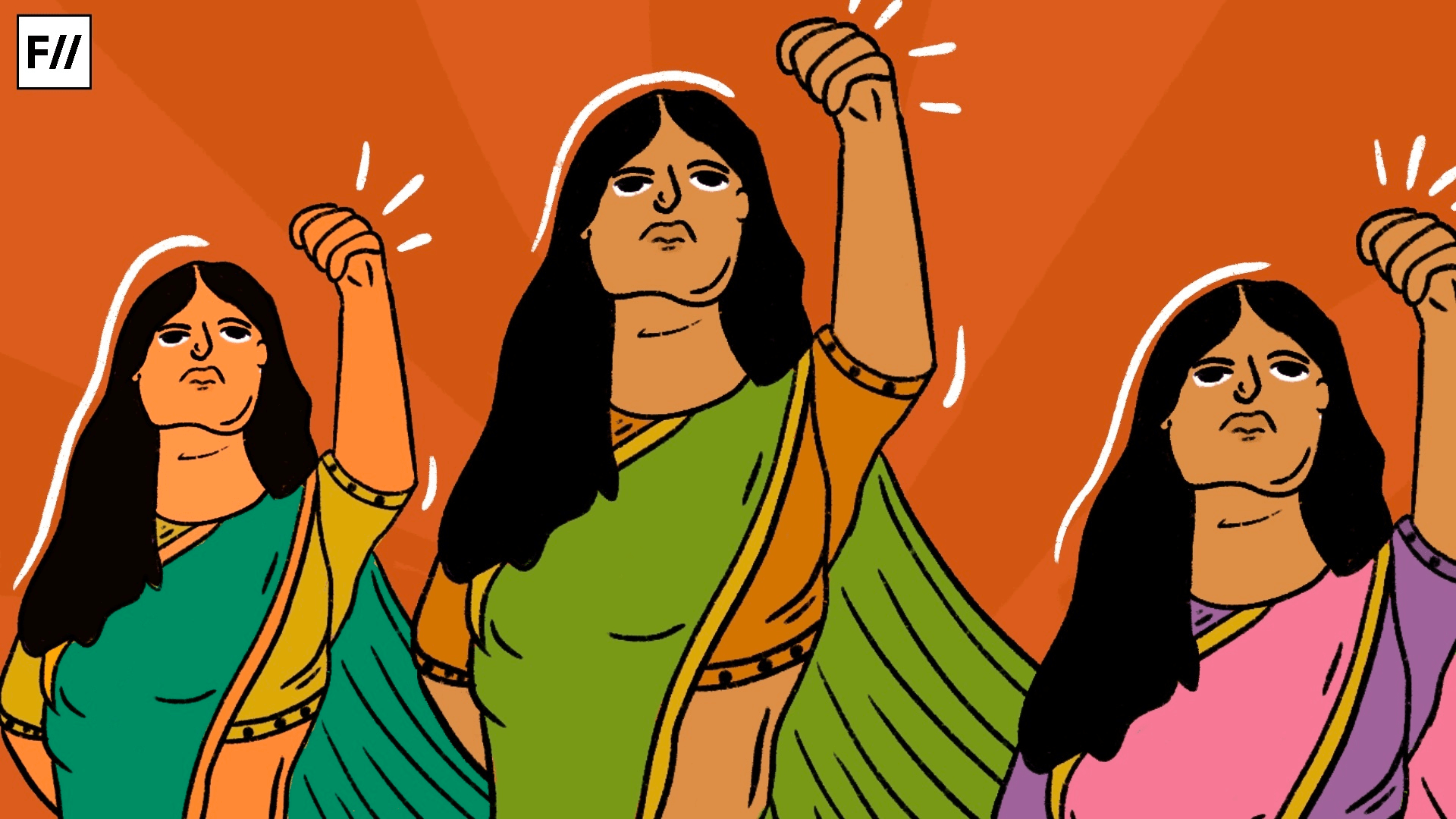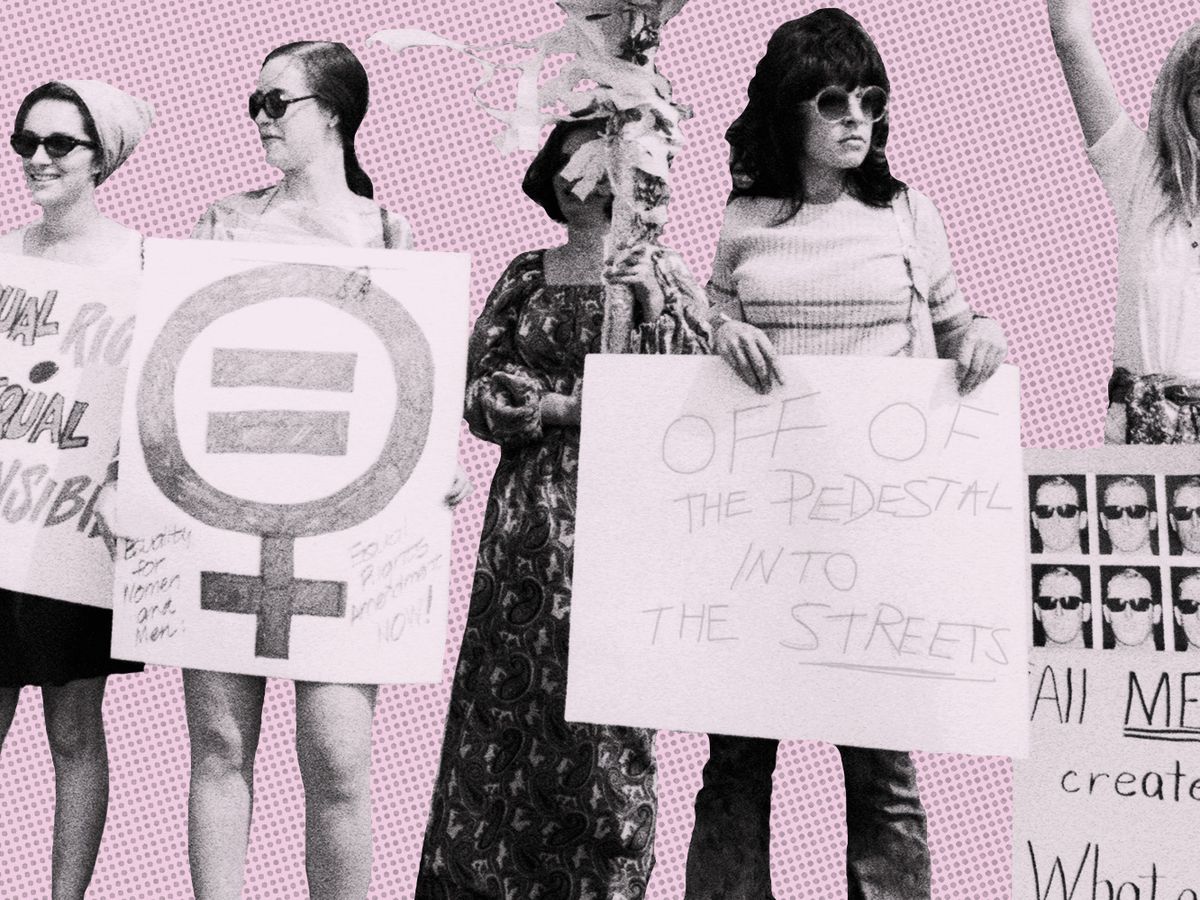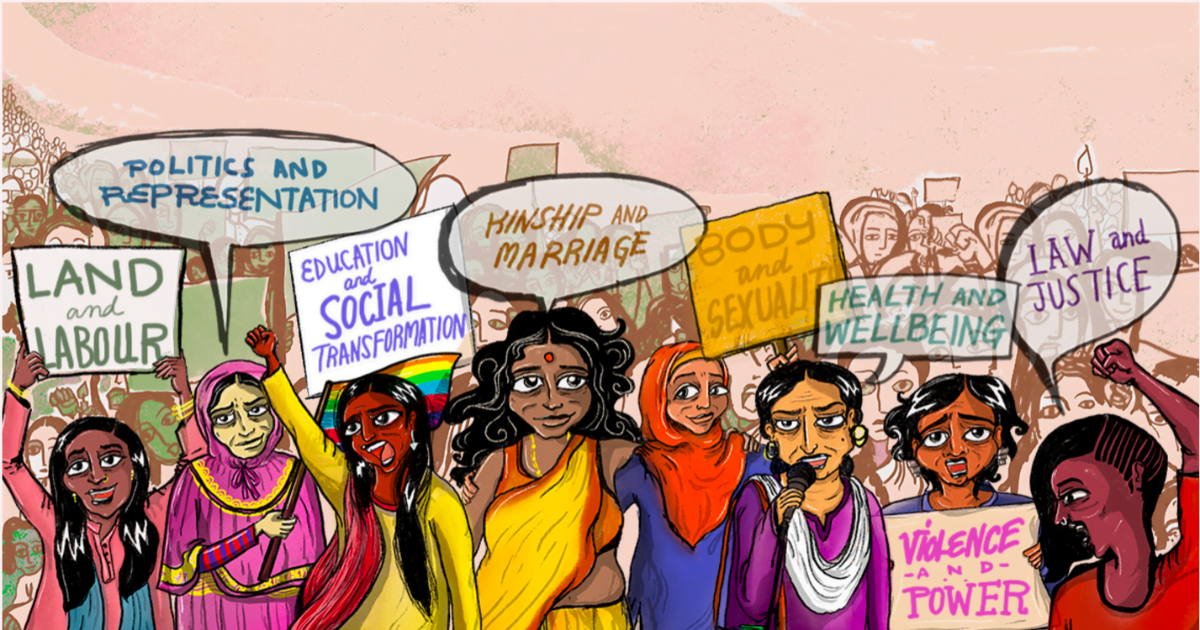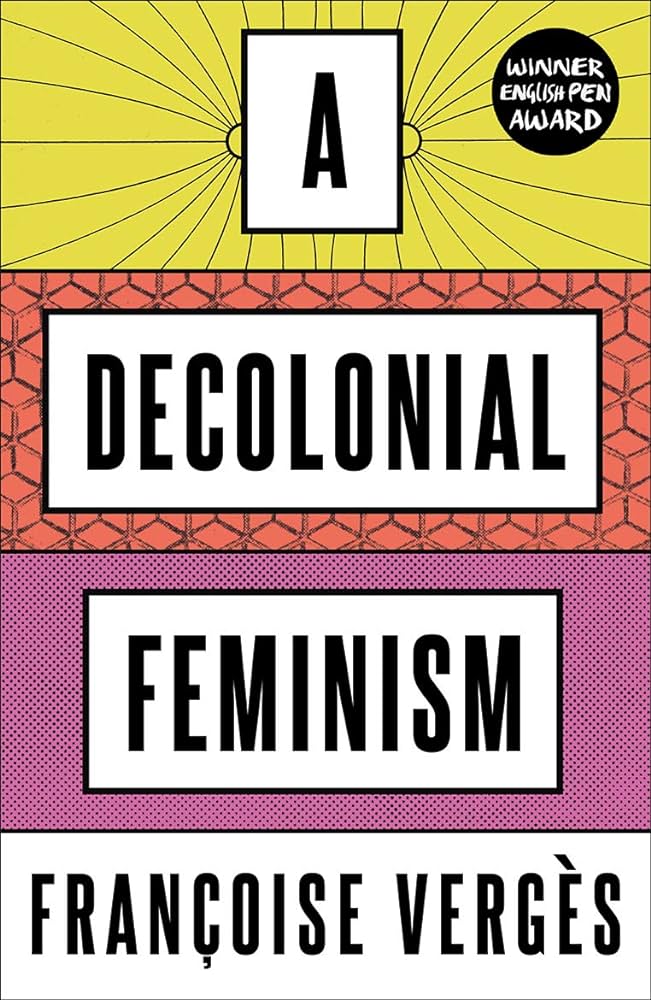Over the last few years, all forms of knowledge systems that have been popularised and practised, have been done so under an overarching influence of colonialism. Feminism which started as a collective political movement in the late 1890s has evolved similarly, concentrating its theorisation and potential praxis within the colonial world, leaving behind many whose lived experiences are overshadowed and written out of academia.
Different waves of feminist movement through history
In March of 1968, Marsha Lear first coined and categorised different waves of feminism in a New York Times Magazine article, named ‘The Second Feminist Wave: What do these women want?’ The first wave of the feminist movement mostly worked towards attaining equal rights for women in the public sphere. It was spearheaded by the Suffragettes movement in the West.
However, the second wave of the feminist movement brought attention to the lives of women in the private sphere. Within the second wave of feminism, the most popular rhetoric peddled by the radical feminists was the rhetoric of sisterhood that was mostly practised by white, middle to upper-class, cis-heterosexual women.
Only in the late 90s, with the advent of the third wave of feminism, scholars, activists, and critics started pointing out the problems with homogenising, essentialising, and universalising women’s experiences around the world. Through third-wave feminism, an intersectional approach to women’s experiences differing on the basis of their race, religion, caste, sexuality, and ethnicity was recognised. It was an attempt to make space for voices that had hitherto been suppressed within the movement without entirely dismantling the previous structures of feminist struggles that were in place.
Yet, decolonial feminists often feel that the intersectional attempts made by third-wave feminism, beginning in the 90s to early 2000s, have been co-opted and overtaken by imperialist and capitalist agendas around the world. Gender inequality doubled as it continued to prevail within the home and the workplace. At the same time, women’s unpaid care work went unaccounted for while various communities still barred women from having the same careers as men. The decolonial feminist movement arose as a response to such conditions of women around the world.
Understanding decoloniality
The decolonial feminist movement, however, functions differently from the aforementioned waves of feminist movement. It rejects the colonially constructed knowledge system within which feminist scholarship encompasses. It is not interested in making space for subaltern women within the mainstream, liberal framework of the Western feminist movement. Decoloniality focuses on unlearning and delinking from the conventions of colonial power and the knowledge created within the context of it. It posits the privileged community of women belonging to the oppressor class at the forefront while their concerns remain largely detached and unrelatable from the oppressed communities of women.
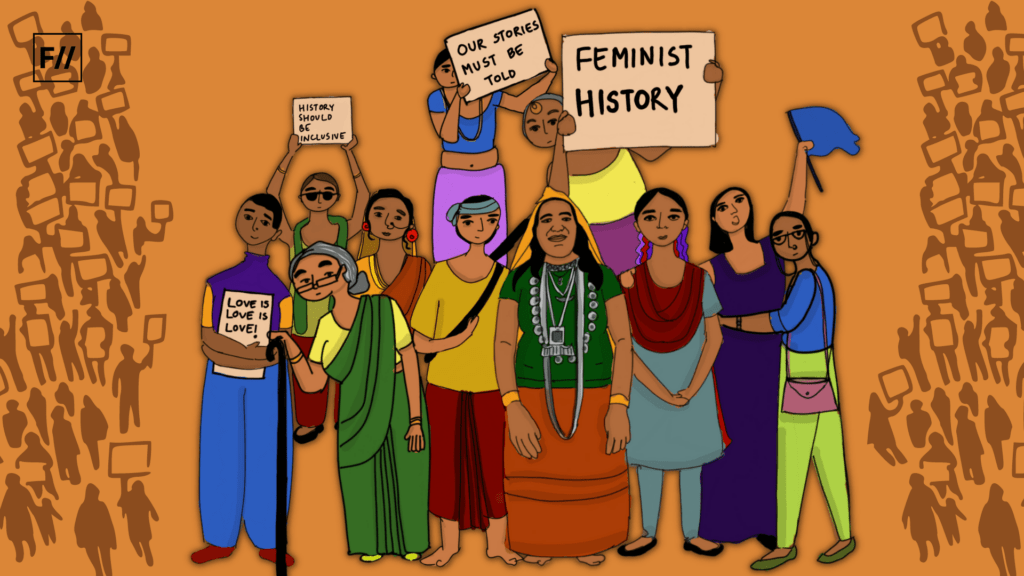
As defined by the Decolonizong Humanities Project at William and Mary College, ‘Decoloniality refers to the logic, metaphysics, ontology, and matrix of power created by the massive processes and aftermath of colonization and settler-colonialism. This matrix and its lasting effects and structures are called “coloniality.” More plainly said, decoloniality is a way for us to re-learn the knowledge that has been pushed aside, forgotten, buried or discredited by the forces of modernity, settler-colonialism, and racial capitalism.’
However, decoloniality does not reject modernity in its entirety, nor does it advocate renouncement of all the progress that has been made universally.
However, decoloniality does not reject modernity in its entirety, nor does it advocate renouncement of all the progress that has been made universally. Rather, it seeks to create a movement from the ground up that undoes the effects of colonial power. Instead of engaging in dialogue or power tussle with the colonial system of knowledge, it completely removes it and asks for a new foundation where women whose voices have not yet been heard will take control and have equal footing.
According to the Decolonizong Humanities Project, ‘Decoloniality is not a means to reject the scientific, medical, social and ethical “advances” of the modern era tout court. It is, rather, a way to explore colonisation, settler-colonialism, racial capitalism (particularly as it grew out, in full racializing force, with the enslavement of black Africans), modernity, and, most recently, neoliberalism and necrocapitalism and how they have displaced an array of modes of living, thinking and being in our natural world.’
However, it must be remembered that methods of decoloniality are often interpreted and exercised differently by different individuals. Postcolonial studies point out that while the physical constraints of colonialism might be gone, the social, cultural, and political effects of imperialism strongly influence us and shape our lifestyle. Postcolonialism is still an ongoing effect that would perhaps never be concluded but it must be continued as a lifestyle, as a way of living and thinking. It suggests dealing with the lingering traces of imperialism that we inherit from our past, readjusting and questioning what we consider as the norm, and then undoing it as a continuous process.
Decolonial feminist movement: a response to previous waves of feminism
However, decoloniality in praxis asks for a more radical approach towards feminism. It asks us to go back to our roots and figure out where we were before the effects of colonialism took control of our lives. In decolonial feminism, the greatest achievement lies in its singular focus on decentralising dominant feminist voices from the colonial class and giving space to the subaltern. It does not merely ask, ‘Can the Subaltern Speak?’ because it knows that they can, and seek to hear loud and clear what has been said for centuries but have not been heard.
An overview of the text A Decolonial Feminism by Francoise Verges
Francoise Verges’ book A Decolonial Feminism grapples with the central issues in feminist debates today: from Eurocentrism and whiteness to power, inclusion, and exclusion. Delving into feminist and anti-racist histories, Verges also assesses contemporary activism, movements, and struggles, including #MeToo and the Women’s Strike.
On 9th November 2021, the Women’s Center of Georgetown University hosted a book talk with Francoise Verges where she outlined the need for decolonisation within the feminist movement. For too long, feminism has been co-opted by the forces they seek to dismantle. In this powerful manifesto, Francoise Verges argues that feminists should no longer be accomplices of capitalism, racism, colonialism, and imperialism: it is time to fight the system that created the boss, built the prisons, and policed women’s bodies.
Francoise Verges argues that feminists should no longer be accomplices of capitalism, racism, colonialism, and imperialism: it is time to fight the system that created the boss, built the prisons, and policed women’s bodies.
Verges says, ‘There was white feminism in the 1970s but what I saw starting from late in 1990s to 2000 was that everyone could be called a feminist even a far-right person, even a racist woman, even a racist man to begin with, and also I saw so much state feminism. A female nationalist- I mean all this form of feminism that serves racism, capitalism, and imperialism, I say, oh we have to grab back the term feminism and give it back its radical meaning. Also because we had a radical revolutionary background in feminism, in the United States but also black feminism in Brazil and elsewhere and Islamic feminism or different forms of feminism around the world. So it was important to reappropriate that radical tradition and say, ‘Okay, you may call yourself feminist but we know better’.’
Decolonial feminism points out that women’s liberation is not possible as a singular political movement. Patriarchy manifests itself within nationalist powers, imperialism and colonial power, capitalist giants, and different forms of neo-liberal and right-wing political spaces as well. As a result, feminist movements cannot truly thrive or empower women while these power structures continue to exist.
Decolonial feminism points out that women’s liberation is not possible as a singular political movement
Women’s empowerment can only happen through the abolishment of such power structures, fostering a space for diversity in terms of race, religion, and ethnicity, allowing all workers to live healthy lives with liveable wages, and reinstituting indigenous people to their rightful land.
About the author(s)
Debabratee (she/they) is a student of English Literature at Jadavpur University. When they are not found reading or writing, they are found running after their pet dog and cuddling with him. They are avid binge-watcher of all kinds of OTT content and like to dissect and analyse them in their free time.
